Web or Digital accessibility testing tools are software programs and can be online services that help you determine if web content meets accessibility international or country-specific standard guidelines.
It is important to perform a comprehensive accessibility audit which is usually automated and manual testing on your website or app to identify accessibility issues and provide people with disabilities equal access to web content as required by different legislations. The automated test is performed using an automated testing tool to test your web pages to discover common issues while accessibility experts and expert disabled users perform manual testing.
These automated accessibility evaluation tools help web developers and accessibility experts perform website accessibility evaluations and ultimately help them make the website or app accessible to people with disabilities. Some website testing tools can help test pages that are password-protected while some can not. The choice of accessibility testing tool will depend on your site’s needs and budget, among many other factors Accessibility Audit: What You Should Know. Some evaluation tools are free, while some are not. Ultimately, they help test your website against W3C’s Web Content Accessibility Guidelines (WCAG 2.0), Americans with Disabilities Act (ADA), and Section 508, among other standard digital accessibility requirements. Some of the testing tools also have their custom accessibility guidelines to check against, but remember, the best practice is to consider accessibility at every step in the development process.
Accessibility testing tools are also useful to help monitor accessibility problems through ongoing automatic testing and reporting and provide online reports that can be saved for easy access by shared sub-users.
It will be essential to note that no web accessibility evaluation tool can provide accessibility or can tell if your website is accessible to individuals with disabilities. They are only used to identify where your site is not accessible, i.e, evaluate your accessibility and not usability, and can sometimes produce misleading results. In other words, manual accessibility testing must be done to determine a site that can be used by people with disabilities. Only a few automated testing tools test the DOM, and the majority can only check for about 20-30% of your accessibility issues.
Accessibility Testing Tools
Here are some top website evaluation tools you can use to test your website against the Web Content Accessibility Guidelines in no particular order:
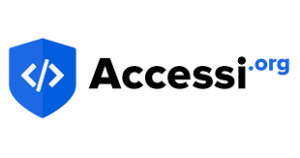
Price: Free URL test
The Accessi ADA Compliance Checker is a free automated accessibility testing tool that tests your website against the latest WCAG 2.1 (Level A-AAA). The ADA site compliance checker allows you to enter URLs and generate audit reports, allowing you to filter by guidelines, priority (impact), and tags (supports CSS, Images, and HTML formats). The result also gives information on how to test, and right and wrong picture examples.
Accessi ADA Compliance checker especially makes it easy for non-technical persons to understand accessibility errors, and status, and know how to make them right. It is the only free website testing tool with a picture illustration of how to make your website accessible and compliant with accessibility regulations.
Price: Free URL test, and free Chrome, and Firefox extensions
- $.025 each for WAVE API credits (100 free),
- $4000 minimum for WAVE Stand-alone API, and
- $150 for up to 1,000 pages for Pope Tech accessibility tool.
Web Accessibility Versatile Evaluator (WAVE) was developed in 2004 by WebAIM (Web Accessibility In Mind) and has become a renowned tool for accessibility testing. WAVE provides an online service, browser plugins (Firefox or Chrome extensions), an online API service, and a stand-alone API product. It contains a free and paid suite of web accessibility evaluation tools used to check accessibility issues against the internationally recognized standard- W3C’s Web Content Accessibility Guidelines (WCAG 2.0 or 2.1) and the U.S. federal procurement standard, Section 508.
The extensions allow you to check the accessibility of your website making it easy to run a quick test on any page while you’re on it while the WAVE online checker allows you to automatically check a single web page, group of websites, and password-protected web pages by entering the URL. It then generates an annotated copy of the evaluated web page (visual feedback about the accessibility of your webpage) with recommendations on how to repair the errors on the web pages. The tool only provides accommodation in English and supports CSS, HTML, XHTML formats.
Price: Free URL test
Cynthia Says was developed in 2015 courtesy of Cryptzone North America, Inc. It is an open-source i.e free web content accessibility evaluation software that checks single HTML pages for conformance with accessibility standards. Cynthia Says is intended to expose you to the parent – Compliance Sheriff’s full-featured solutions for automated monitoring and testing by allowing users to perform accessibility checks against WCAG 2.0 (A, AA, and AAA) and Section 508 standards.
Cynthia Says only allows you to automatically check a single web page by entering the URL on their portal (sites behind a firewall will be performed by their commercial solution- Compliance Sheriff) and will generate a clear report of the evaluation results. The tool only provides accommodation in English and supports CSS, Images, and HTML formats.
Price: Free URL test for up to 10 pages
- 30-day trial
- $149 single-user license (30-day money-back guarantee)
SortSite was released in 2009 by PowerMapper. It is available as a desktop and web application for Mac or Windows and offers a 30-day trial and paid suite of the website accessibility testing tool. As an automated testing tool, SortSite is used to check accessibility issues against checkpoints such as W3C-WAI’s Web Content Accessibility Guidelines (WCAG 1.0 or 2.0) and the U.S. federal procurement standard, Section 508.
SortSite allows you to automatically check a single web page, a group of web pages, and password-protected web pages by entering your site address. It then generates a report according to the level of impact of severity with a direct link to the appropriate WCAG or Section 508 guidelines to guide your developers and designers in removing the errors. The tool only provides accommodation in English and supports CSS, HTML, PDF documents, Images, and XHTML formats.
Price: Free URL test, and free Chrome, and Firefox extensions.
- Free Web Testing API, Android Testing API, and Windows Testing API
Axe Plugin was developed by Deque Systems and has become one of the most popular accessibility testing toolkits. Axe has an open-source, customizable accessibility testing engine to analyze web content’s conformance with accessibility standards. The aXe Firefox and Chrome extensions allow developers to perform accessibility checks against created guidelines/standards such as W3C-WAI’s Web Content Accessibility Guidelines (WCAG 2.0), Section 508, BITV of Germany, JIS of Japan, and Irish National I.T Accessibility Guidelines.
While the aXe tool helps to build accessibility into your dev process, the extensions make it easy to run an immediate test on any single web page and password-protected web page while you’re on it. The generated reports will show the frequency of occurrence of an error on the page and the cause of the issue, and a direct link to additional information regarding each issue in the Developer Tools. It will also provide recommendations on how to solve the issue in the same tab and also allow performing manual Screenreader accessibility testing for some areas. The extensions only provide accommodation in English and support HTML and XHTML formats.
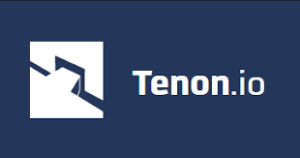
Price: Free URL test, and free Chrome extension
- Starting from $0.03 for each Tenon API.
Tenon was released in 2013 and it provides an online service, browser plugins (Chrome extension), and a stand-alone API tool. It contains a free and paid suite of web accessibility evaluation tools that designers, developers, expert testers, and content authors can use to check accessibility issues against the internationally recognized standard- W3C’s Web Content Accessibility Guidelines (WCAG 1.0 or 2.0) and Section 508.
The free Tenon Chrome extension allows you to quickly check the accessibility of the page you are currently viewing while the Tenon online checker will enable you to automatically check a single web page, group of web pages, and password-protected pages by entering the URL and the API by integrating into your existing development pipeline. It then generates your evaluation result or displays information within web pages (for Chrome extension). The tool integrates with IDEs, Jira, Git, Grunt, etc., and supports CSS, HTML, and XHTML formats.
Price: Free
Accessibility Viewer (aViewer) was developed in 2015 by the Paciello Group. It is an open-source i.e free web content accessibility inspection tool that checks pages for conformance with accessibility standards. It allows users to author their accessibility checks against guidelines/standards such as W3C’s Web Content Accessibility Guidelines (WCAG 2.0) and Section 508, the U.S. federal procurement standard.
Accessibility Viewer performs automatic checks on single web pages and displays the accessibility API information within the web pages. The tool supports HTML format.
Price: Free, open-source.
Pa11y presents open-source (free) software tools. Released in 2015 by the Nature Publishing Group, Pa11y presents web content accessibility evaluation tools that monitor conformance with accessibility standards. It allows designers and developers to author their own accessibility checks against standard guidelines such as Web Content Accessibility Guidelines (WCAG 2.0) and U.S. Section 508 of the Rehabilitation Act.
Pa11y allows you to automatically check single and groups of web pages, including password-protected web pages, by entering the URL, after which it generates a report of evaluation results. It can also be integrated into your build processes and continuous integration pipelines. The software is useful for ongoing compliance checks and supports CSS, Images, and HTML formats.
Price: Free, open-source.
Tota11y was developed in 2015 by Khan Academy. It is an open-source web content accessibility evaluation tool that checks a page for compliance with accessibility standards. Tota11y provides browser plugins (Safari, Internet Explorer, Firefox, and Chrome extensions), which allow developers to perform accessibility checks against WCAG 2.0 to discover issues related to contrast, form labels, headings, images, confusing link text, etc.
The Tota11y plugins allow you to automatically check the accessibility of any web page easily while you’re on it. It then generates an annotated copy of the evaluated web page, helping to visualize accessibility violations (and successes) within the web page while suggesting instructions to fix these violations. Tota11y extensions support CSS, Images, and HTML formats.
Price: Free, open-source.
Google Accessibility initially released accessibility Developer Tools in 2014. It is an open-source accessibility evaluation tool that checks a web page for conformance with accessibility standards. Google Accessibility Developer Tools adds an accessibility audit and sidebar to Chrome Developer Tools that allows developers to perform an audit against the internationally accepted standards for web accessibility, the WCAG 2.0.
The Developer Tools allows you to perform accessibility audits automatically and has a sidebar pane to inspect an element. It generates an audit report as a list of rules that are violated by the page while the Accessibility sidebar pane provides extra debugging information such as color contrast values, missing required ARIA attributes, etc. The Chrome extension supports CSS and HTML formats.
Price: Free URL test
The Bureau of Internet Accessibility released the A11Y Compliance Platform in 2014. The platform is a paid suite of web accessibility evaluation tools that are used to check accessibility issues against checkpoints such as W3C’s Web Content Accessibility Guidelines (WCAG 2.0/2.1 AA), ADA, Section 508, and the French government standard, RGAA.
A11Y Compliance Platform’s online free checker allows you to automatically check a single web page while the hosted service (the software) can check a group of web pages, including password-protected web pages. It then generates a report which is usually prioritized by the compliance risk factor to ensure your developers and designers are removing the most important errors first and recommendations on how to repair the errors with displayed examples. The A11Y Compliance tool supports CSS, HTML, XHTML. SVG, PDF documents, Images, and SMIL formats.
Price: Free Chrome and Firefox extensions, and free test versions.
- $9.20 each for Total Validator Basic
- $46 each for Total Validator Pro
Total Validator was released in 2014 and it provides free browser plugins (Chrome and Firefox extensions), and applications (Total Validator Basic and Total Validator Pro). Its free and paid suites of web accessibility evaluation tools can be used by developers to check accessibility issues against the internationally recognized standard- Web Content Accessibility Guidelines (WCAG 1.0 or 2.0) and Section 508.
Total Validator performs a range of functions as a 5-in-1 validation tool. For accessibility, the free Total Validator Chrome and Firefox extensions allow you to validate the accessibility of a page as you surf along while the paid Total Validator platforms allow you to automatically check a group of web pages, restricted pages, and javascript-generated web pages at a go, and can generate the evaluation result of your entire website. The tool supports CSS, HTML, and XHTML formats and has the ability to run on Windows, macOS, and Linux. It also has the ability to detect up to five languages (English, Italian, French, German, and Spanish).
Price: Starting at $40 per month (14-day free trial)
The first version of Dynomapper was released in 2018 by Indigo Design Company LLC. It offers a free 14-day trial and paid suite ( plans start at $40 per month for Unlimited Accessibility Testing and Reporting) of the website accessibility testing tool. As an automated testing tool, Dynomapper is used to evaluate a website’s HTML content for underlying accessibility issues by testing against checkpoints such as Web Content Accessibility Guidelines (WCAG 1.0, 2.0/2.1 Level A, AA, and AAA), Section 508, BITV 1.0 (Level 2), and Stanca Act.
Dynomapper allows you to automatically check a single web page, a group of web pages, and password-protected web pages (unlimited accessibility testing and reporting and unlimited users). It then enables the user to view accessibility tests live in a browser that contains all the issues as indicated icons over the live website image. The tool supports CSS, HTML, and XHTML formats and it is very useful for monitoring accessibility compliance by performing ongoing automatic testing and reporting.
Price: Free, open-source.
AChecker was developed in 2009 by the Inclusive Design Research Centre. It is an open-source, i.e., free and customizable web content accessibility evaluation tool that checks HTML pages for conformance with accessibility standards. Because it is based on Open Accessibility Checks(OAC), it allows users to author their accessibility checks against created guidelines/standards such as W3C’s Web Content Accessibility Guidelines (WCAG 1.0 or 2.0), Section 508 of the U.S.A, BITV 2.0 of Germany and Italy’s Stanca Act.
AChecker allows you to automatically check single and password-protected web pages by entering the URL, uploading the HTML file, or pasting the HTML markup and can duly generate a report of the evaluation results. The tool provides accommodation for English, German (Deutsch), and Italian (Italiano) languages, and supports CSS, HTML, and XHTML formats.
Side note: Do not forget, that relying solely on automatic testing is a bad idea. You’re not done until you perform a manual review of the website.
You can continue to check this page often for regular updates.


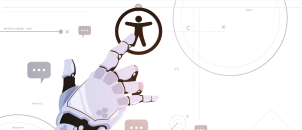

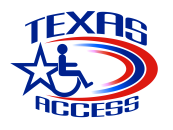
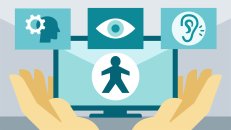
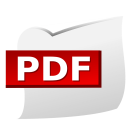

Please add CSS HTML Validator for Windows.
It checks accessibility and is also a CSS and HTML validator that’s been around since 1997.
There are also command line versions of it for Mac and Linux.
Great article